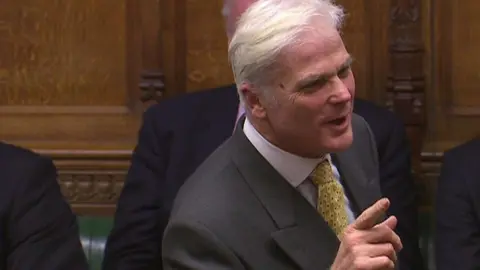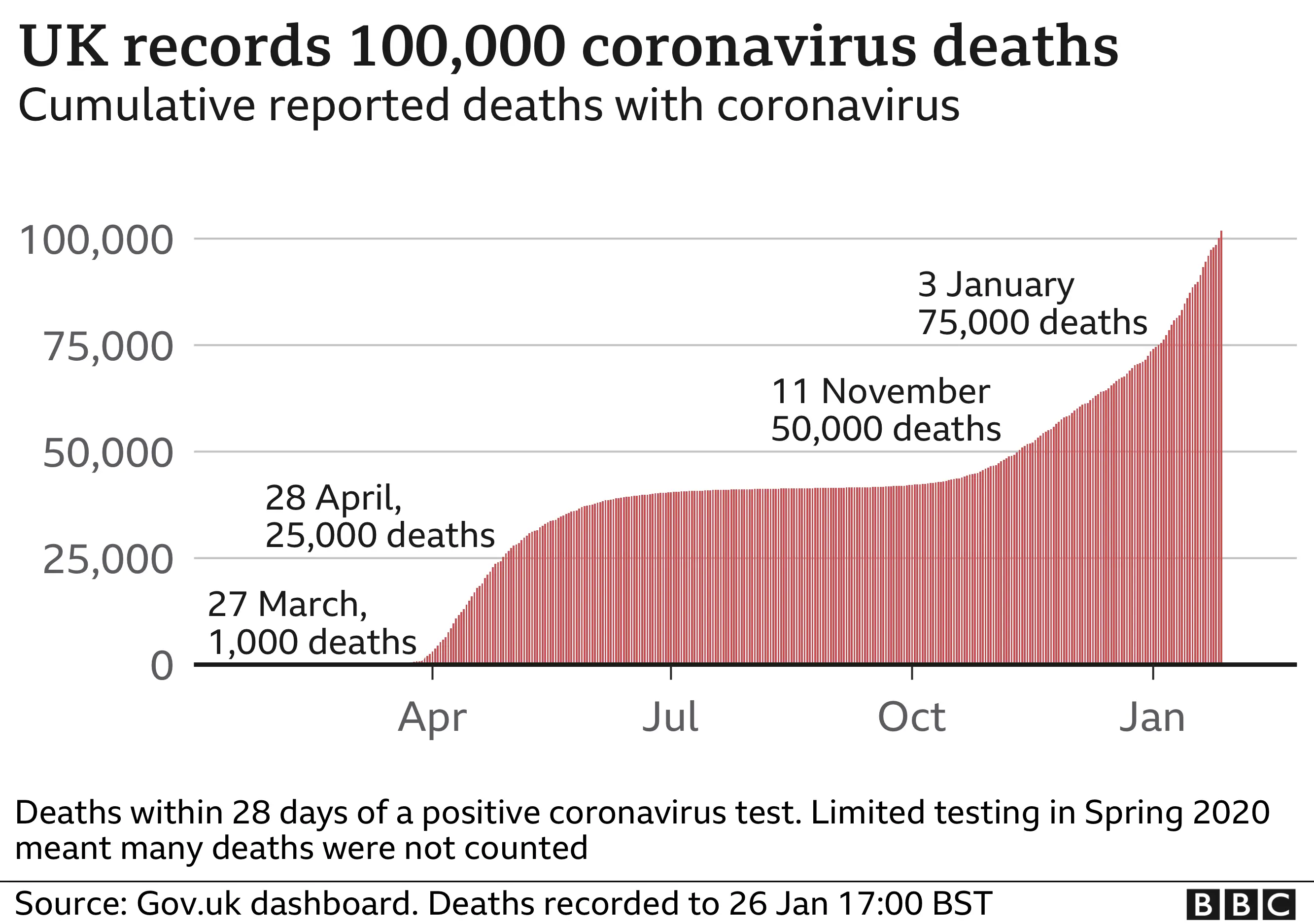Coronavirus: Tory MP Sir Desmond Swayne refuses to apologise over Covid claims
 house of commons
house of commonsA Tory MP has refused to apologise after claims he spread "dangerous misinformation" about coronavirus.
Sir Desmond Swayne told an anti-lockdown group that statistics on the virus "appear to have been manipulated" and risks to the NHS were "manageable".
Home Secretary Priti Patel called the remarks "thoroughly wrong" and urged Sir Desmond to retract them.
But the New Forest West MP has stood by his words, telling Sky News he held a "legitimate point of view".
Sir Desmond - who has been a frequent critic of lockdown measures in Parliament - declined to be interviewed by the BBC about his comments.
He spoke to an anti-lockdown group - which also questions vaccine safety - during a recorded interview in November.
"We're told there is a deathly, deadly pandemic proceeding at the moment," he said. "That is difficult to reconcile with ICUs (intensive care units) actually operating at typical occupation levels for the time of year and us bouncing round at the typical level of deaths for the time of year."
The interview has surfaced in the week the UK passed 100,000 deaths linked to the virus, and NHS data shows more than 37,000 people are in hospital with Covid-19.
Labour's deputy leader, Angela Rayner, has called for the prime minister to "intervene urgently" over Sir Desmond''s conduct.
She said Boris Johnson should "condemn these comments and take action", adding: "A failure to do so risks undermining our national effort to defeat this virus, combat dangerous anti-vaccine disinformation and vaccinate Britain."
Ms Patel said: "These comments are thoroughly wrong and I very much hope Desmond will reflect and retract [them].
"I would strongly urge him to think about what he has said and the context in which his comments have been made and take these comments back."
And Cabinet Office Minister Michael Gove said he hoped Sir Desmond "would issue a full and complete retraction and apology for what he said".

But the backbench MP told Sky News he had already complained in the Commons about "the way in which statistics have been presented and data has been revealed" during the pandemic and he was "not clear as to what what I am being asked to apologise for".
Asked if he would apologise for his comments, Sir Desmond said "no" and claimed any action against him by his party would be a "thought crime".
He added: "I accept entirely that the situation has changed and changed dramatically as a consequence of the new variant. But I think they were perfectly legitimate and widely held views at the time."
It is understood the Conservative Chief Whip, Mark Spencer, will speak to the MP and ask him to attend a meeting with scientific advisers.


Was Desmond Swayne correct?
During the interview, he questions the "manipulated" figures which have influenced decisions made by the government.
The interview was done in early November and he states that death rates and critical care bed occupancy in hospital were fairly normal for that time of year.
But this doesn't really represent why lockdowns are put in place.
In theory, they are put in place when cases are increasing quickly (or ideally just before) to stop hospitals being overwhelmed and deaths getting too high.
We normally see the increase in hospitalisations and deaths a couple of weeks after spikes in cases.
When the interview was recorded, deaths in England and Wales were 14% above average for that time of year, but by the end of November, they were 20% above average. Tory MP refuses to apologise over Covid claims
And over the two weeks after the interview, the number of patients with coronavirus in intensive care units (ICU) in England increased by 25% to 1,250.
More recently, we've seen the impact of what happens when cases increase dramatically, influenced by the new strain of the virus.
There are now around 3,700 patients with coronavirus in ICU - almost triple the number at the end of the second lockdown - and hospitals have had to find more critical care beds.
This has led to the recommended patient-doctor ratio not being met and patients being sent to other parts of the country for care.
And in the most recent week, deaths were about 28% above average.
